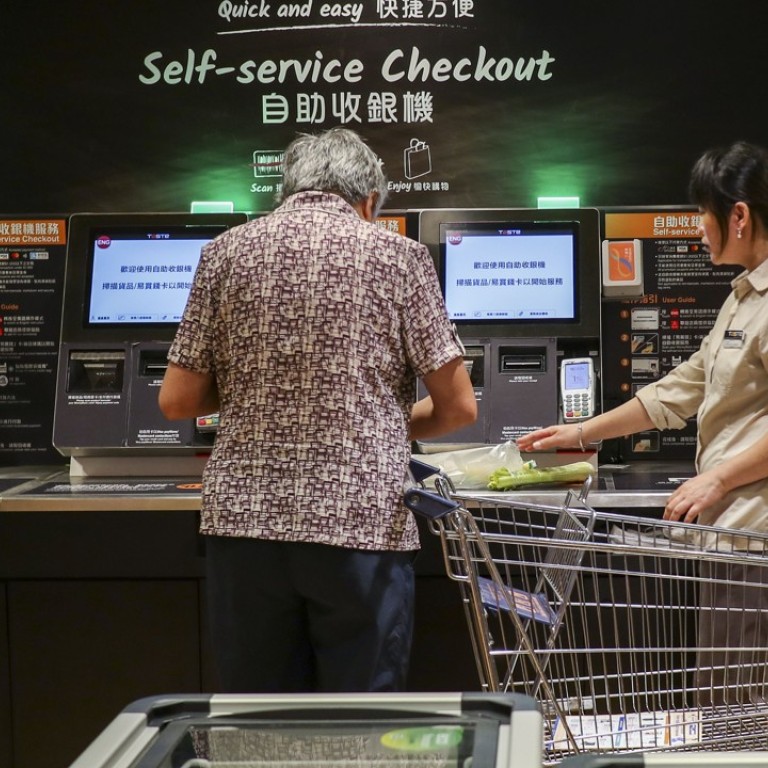
Self-checkouts: customers enjoy faster shopping experience as Hong Kong’s major retailers look to cash in on automation
But retail union warns new system could affect jobs in long term, even though impact seems small at present
Long queues in Hong Kong’s supermarkets could soon be a thing of the past as the city’s major retailers look to adopt more self-checkout machines, but critics warn that increased automation poses a major threat to workers.
By the end of August, AS Watson Group, the retail unit of Li Ka-shing’s flagship conglomerate CK Hutchison, will have set up self-checkout machines in all 220 health and beauty Watsons stores in Hong Kong.
The machines are currently available in at least 180 Watsons stores as well as more than 80 ParknShop supermarkets, about one-third of the total in Hong Kong.
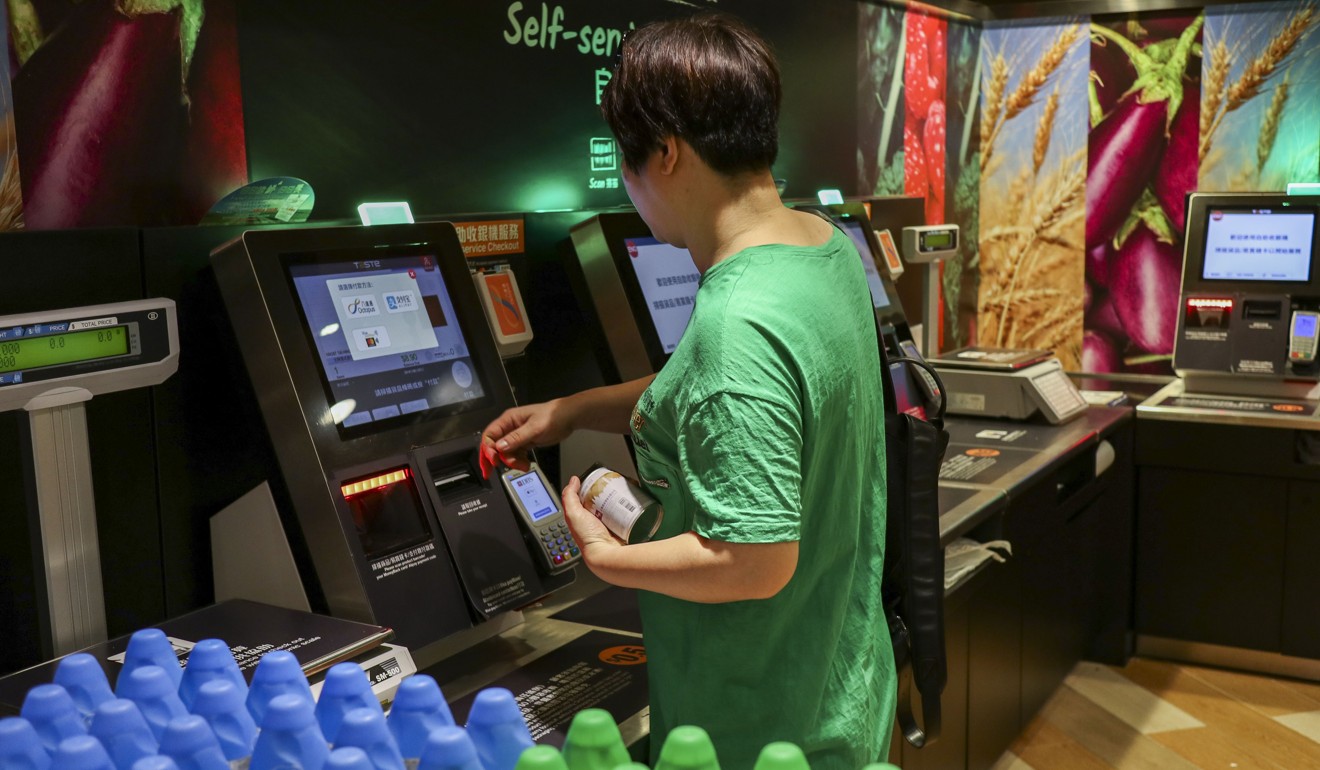
More self-service cashier counters have also appeared in rival supermarkets, such as Wellcome, as well as home furnishing chain Ikea, both operated by retail giant Dairy Farm. The company did not disclose any figures on the new measure.
I no longer need to queue and it is convenient
Retailers in Hong Kong have been slow on the uptake of self-checkout machines that allow customers to scan the bar codes on products, choose their payment method option and tap their card, completing their transaction in only a few minutes. Aeon, which operates Jusco department stores and supermarkets, was among the few that pioneered the use of such machines, adopting them in 2011.
Shoppers said the technology had brought them a swifter shopping experience, though employees said it caused them more trouble.
Cindy To, a customer at Taste supermarket at Amoy Plaza in Ngau Tau Kok, said she used to wait at least five to 10 minutes before getting to a manual checkout terminal. She said the system had made the transaction faster, but buying vegetables and fruit took more time because she had to weigh them before getting to the self-checkout machines.
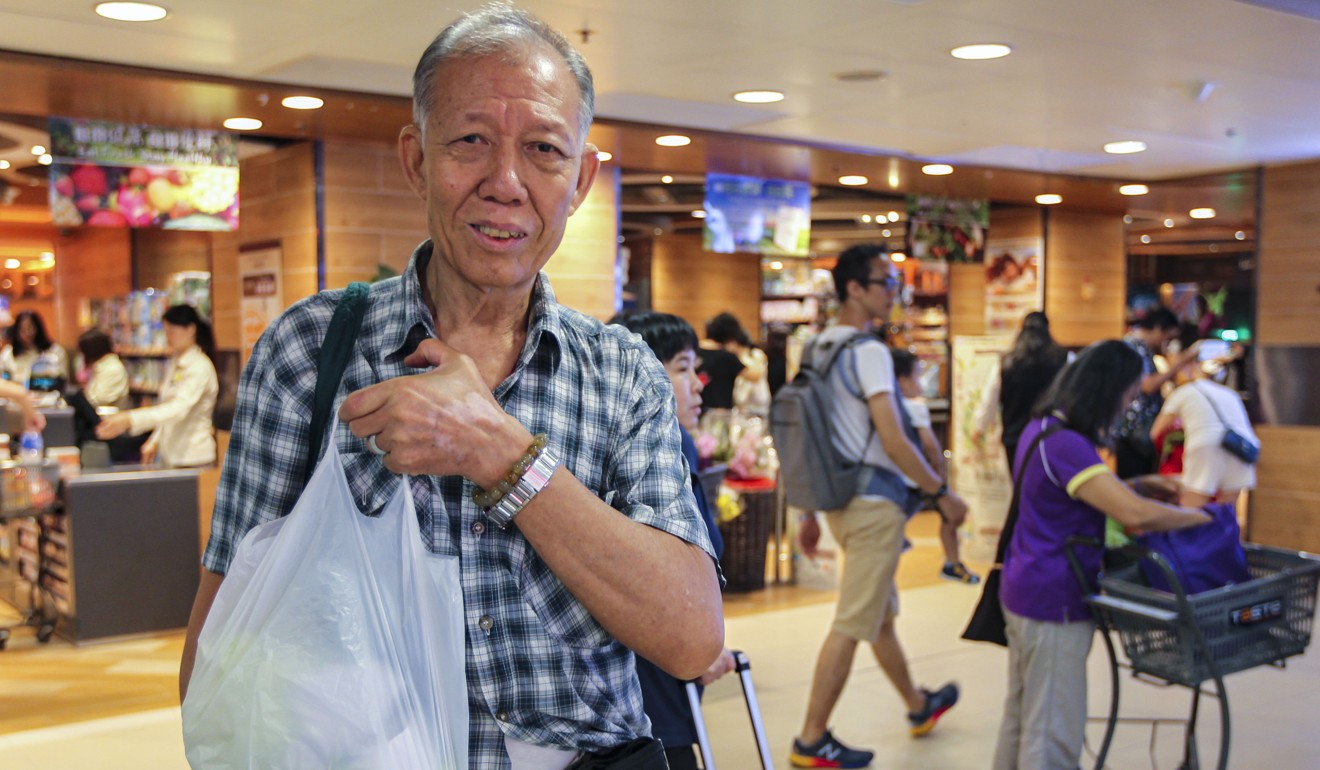
Yip Tin, 76, also a customer, said he had used the self-checkout machines for about two to three months and it was easy to learn the system because a supermarket employee would be nearby to help out.
“I no longer need to queue up and it is very convenient,” Yip said.
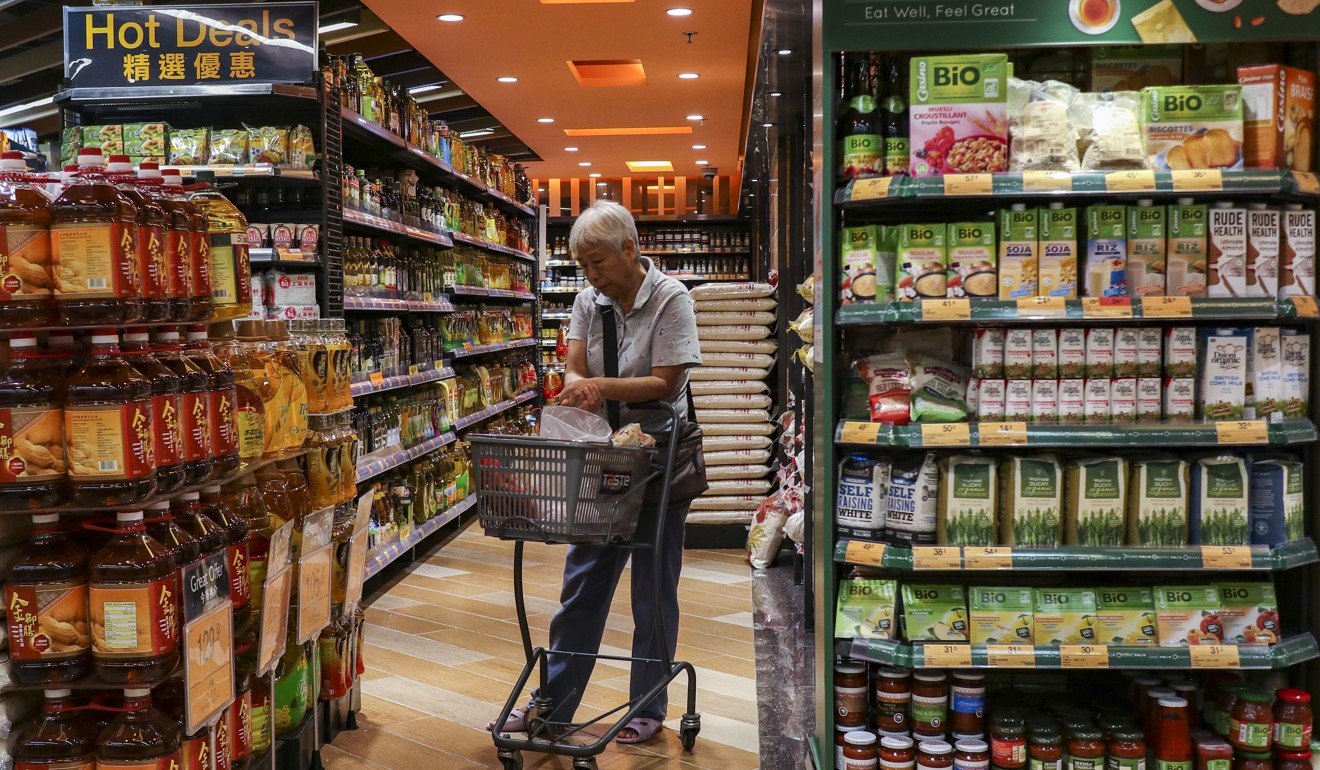
But a woman who gave her name as Chan, who had worked as a cashier in ParknShop for more than a decade, said the machines were a burden because the customers in her supermarket were mainly elderly people.
Do the maths. If every shop removes all the terminals, it will create an impact
“They are so used to doing it manually. In most cases, they can’t learn it,” she said.
Chan said the number of checkout terminals in her shop had been cut from five to two after the company brought in four new machines in May. When a technical glitch happened, one of the remaining two manual terminals would be used to sort out the problem, she added.
The machines are not a threat to jobs, according to Chan, who said the company was already short-staffed.
A spokeswoman at ParknShop and Watsons in Hong Kong also stressed the company had been “recruiting people every day” and that the new system would “reduce the workload of frontline staff and improve their efficiency.”
But the Retail, Commerce and Clothing Industries General Union warned the new system could affect the employment opportunities of frontline cashiers in the longer term, even though the impact seemed small at the moment. The union head predicted customers would get familiar with the machines after a year and job positions would be cut.
“This is a major trend among retail companies. Problems arise later,’ Cheung Lai-ha, general secretary of the union, said.
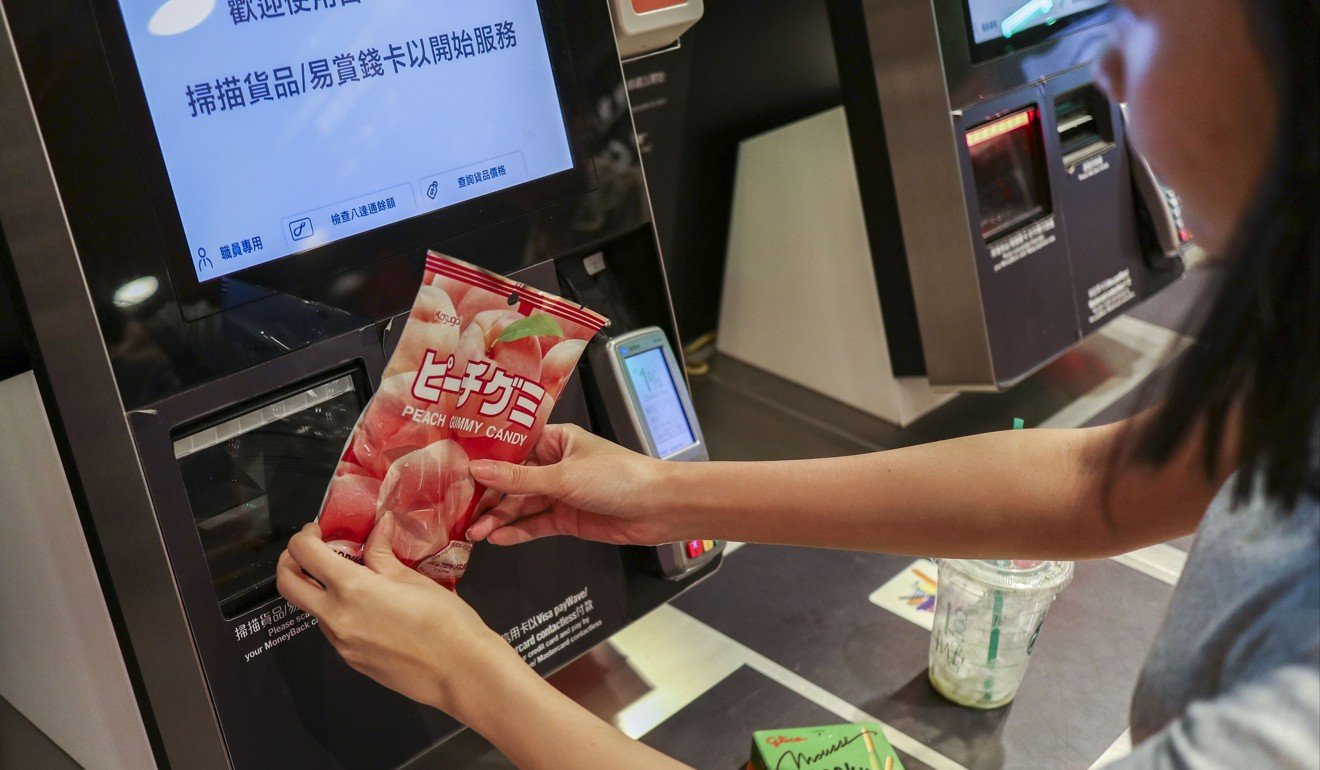
She said some members of the 300-strong retail union told her their companies would not replace workers who left and cut down the hours of part-time staff to avoid redundancies. Cheung added that while some employees were deployed to monitor the machines at the moment, they would not be needed once customers became more familiar.
“Do the maths. If every shop removes all the terminals, it will create an impact,” she said.

